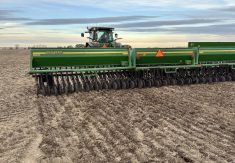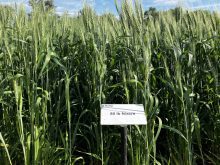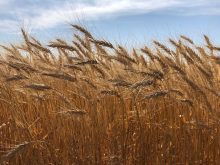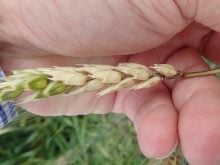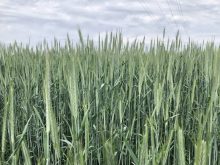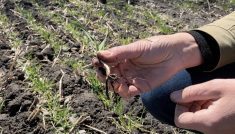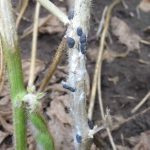All things considered, the announcement is more of a surprise than it should have been.
Corteva Agriscience in mid-November said it’s made a “revolutionary breakthrough” with which it expects to produce hybrid hard red winter wheat for the North American market “as early as 2027” and add other hybrid wheats to the product line over time.
The U.S. company sounds quite upbeat about the performance of its “first-of-its kind, proprietary non-GMO hybrid technology.” It notes its internal yield trial testing shows a 10 per cent increase in yield potential “while using the same amount of land and resources” and yields roughly 20 per cent higher than current “elite” varieties in “water-stressed environments.”
Read Also
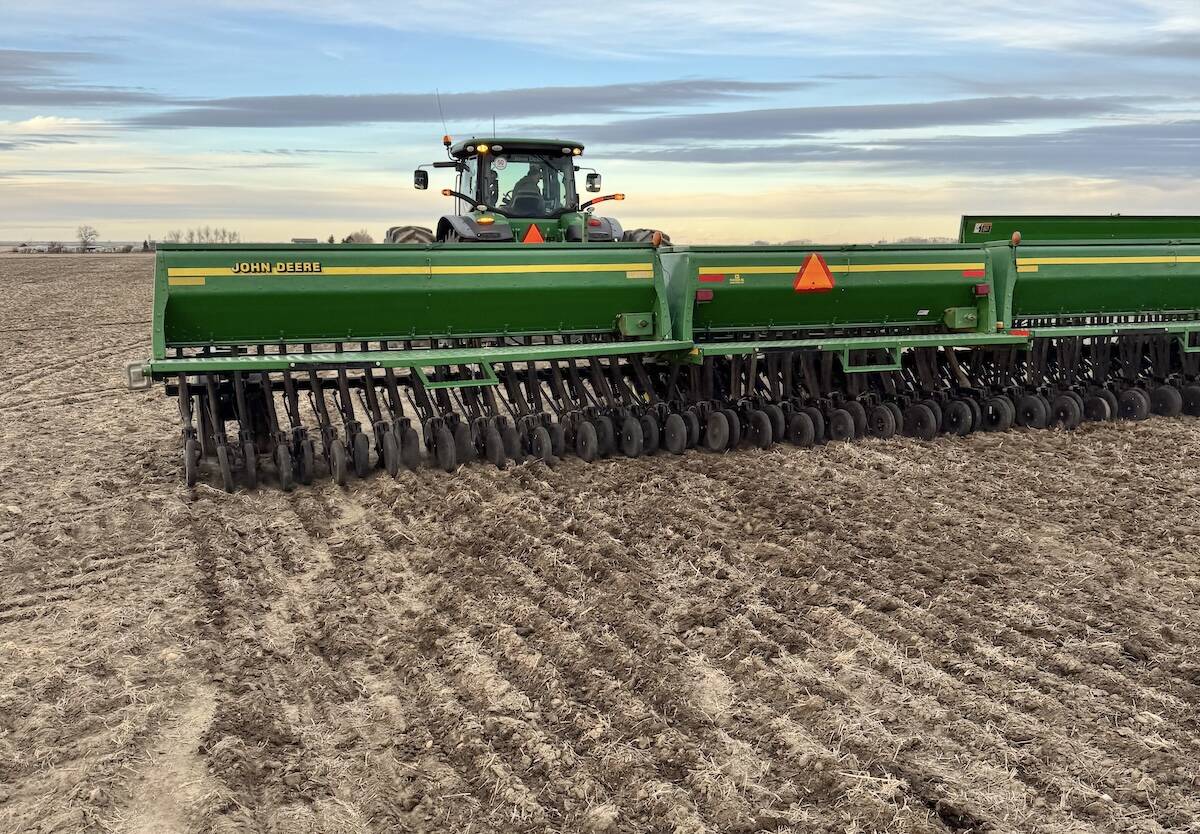
Southern Alberta farms explore ultra-early seeding
Southern Alberta farmers putting research into practice, pushing ahead traditional seeding times by months for spring wheat and durum
(Those trials, Corteva says, were run at six to 10 locations per year over two years, with hard red winter wheat testing done in Oklahoma, Kansas, Nebraska and Colorado.)
Of course, a lot of unknowns still swirl around this announcement. Will this wheat, or one like it, be available to Canadian growers? Corteva has since told us it anticipates introducing the product to the Canadian market at some point but doesn’t yet have a hard timeline for it. It also says it plans to also bring this technology to the hard red spring class by decade’s end.
Also: how will this differ from hybrids other companies have in the pipeline? We’re still waiting to hear more, though we know the answer will be different from just a few years ago, when several players appeared to be racing to get hybrid wheats to market.
From Prairie wheat growers’ perspective, the most significant of those was Bayer, which in the mid-2010s set up a breeding station and trial acreage near Pike Lake, south of Saskatoon, devoted to hybrid wheat. But in 2018 Bayer, needing antitrust approvals for its takeover of Monsanto, sold that shop among others to BASF — which in turn walked away from North American hybrid wheat development in 2023, saying its trials “have not achieved the development goals we set to meet the needs of growers in Canada and the United States” and that it would instead focus its work on European markets.
Syngenta, working on its own hybrid wheats since 2010, rolled out a few thousand acres’ worth of hybrid HRS wheat seed for U.S. growers in 2023 under the brand name AgriPro. It also expects its products to show a 10-12 per cent bump in yield potential compared to current wheats — and that it will produce other hybrid HRS and HRW wheats for the U.S. market within the next few years.
The company, however, also walked away from hybrid wheat development for the Canadian market in 2018, and says it has no plans to bring its new U.S. wheats up here either. “The products continuing to come through the pipeline are not a fit for the industry standards that Canada has today,” a Syngenta rep told the Western Producer in 2023.
Past all that is the big question: cost. As Jim Timlick notes elsewhere in these pages, Corteva alone spends $4 million per day on R+D and needs to recoup such investment from somebody. If its new wheats are ultimately a fit for the Prairie market, that somebody is you.
Setting that price point is the challenge facing Corteva and others. Whatever they ultimately charge growers for this achievement, is a 10 per cent boost in yield potential — 20, in a dry year — going to pencil out for growers who put down cash for this product?
It’s a question the seed companies need to consider carefully — because along with the big breakthroughs come the bills for all the work that didn’t pan out. And while a lot of those expenses are deductible down the road, the bills have still gotta be paid.




